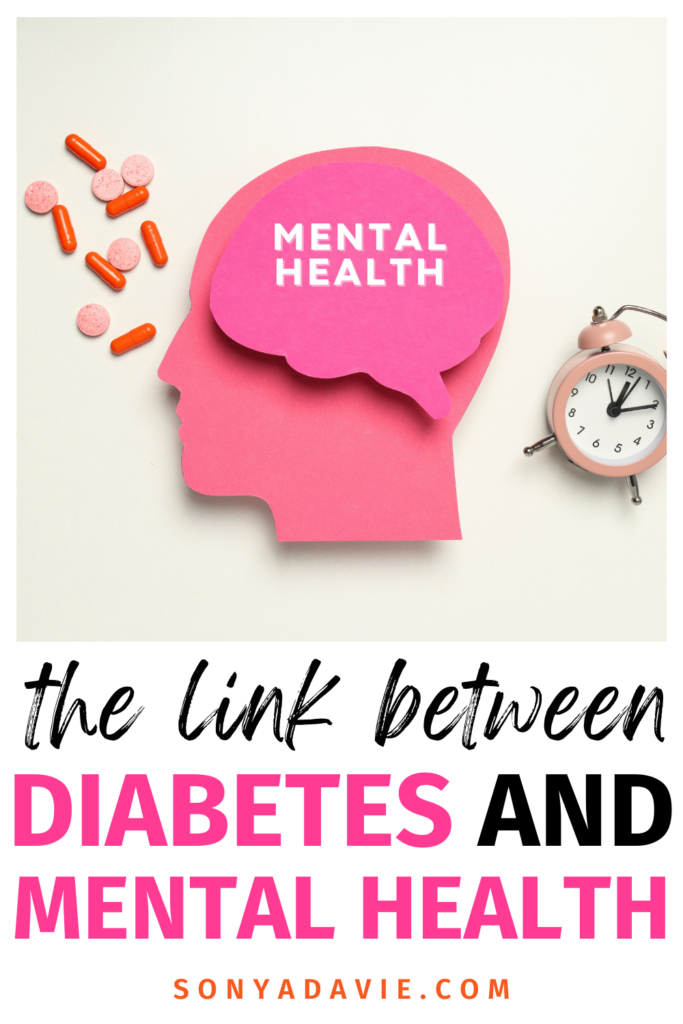Managing diabetes is a challenging journey that can affect both your physical and mental health.
It’s not just about keeping blood sugar levels in check; it’s also about balancing the everyday stressors that can have serious impacts on your overall health.
When stress is thrown into the mix, managing diabetes can feel overwhelming, creating a cycle of mental and physical challenges that can be hard to break.

This post is all about diabetes and health.
With November as National Diabetes Awareness Month, now is the perfect time to dive into the connections between stress, diabetes, and mental health, so you can take control with greater understanding and support.
To start, let’s look at the basics of diabetes.
Understanding Diabetes and Its Types
Diabetes is a chronic condition that affects millions worldwide, including over 37 million people in the U.S. alone in 2023.
It’s a complex disease that goes far beyond blood sugar management. Each day, people with diabetes face not only the physical demands of the condition but also emotional and mental health challenges that can weigh heavily. There are two primary types:
Type 1 Diabetes:
This type of diabetes occurs when your body doesn’t produce insulin. It’s typically diagnosed in childhood or young adulthood, and people with type 1 need daily insulin injections to regulate their blood sugar levels.
Type 2 Diabetes
In this case, your body doesn’t use insulin effectively, a condition often called insulin resistance. Type 2 diabetes is more common, especially in adults, but it can sometimes be managed with lifestyle changes and medication.
Knowing the specifics of your diabetes type helps you tailor your approach to managing stress and maintaining a healthy lifestyle. After all, with the right information and support, diabetes can be managed, making day-to-day life easier and more fulfilling.
How Chronic Stress Can Contribute to Diabetes
Stress is a normal part of life, but when it becomes chronic, it can significantly impact your health.
Here’s how stress and diabetes interact:
Hormonal Changes
When you’re stressed, your body releases cortisol, which then raises your blood sugar. In a short-term, “fight or flight” scenario, this is helpful, but with long-term stress, it can lead to persistently high blood sugar levels.
Insulin Resistance
Chronic stress doesn’t just raise blood sugar levels; over time, it can make it harder for your cells to use insulin effectively, leading to insulin resistance—a key factor in developing type 2 diabetes.

Unhealthy Coping Mechanisms
Stress can prompt habits like overeating, avoiding exercise, or neglecting sleep, all of which are risk factors for diabetes. When you’re stressed, it’s easy to reach for comfort foods or skip a workout, but these habits can make blood sugar harder to control.
Impact on Blood Glucose Control
Chronic stress can lead to fluctuations in blood glucose, creating unpredictable highs and lows that make diabetes management even more difficult.
Cycle of Mental Health Challenges
The impact of stress doesn’t stop with blood sugar levels. It can contribute to anxiety and depression, which, in turn, complicate diabetes management. With this information, the connection between diabetes and mental health has gained increasing attention!
The Link Between Diabetes and Mental Health
Here are some key aspects of the mental health challenges associated with diabetes:

Mood Swings
Blood sugar fluctuations can cause mood changes and irritability, making daily life difficult for both you and those around you.
Anxiety and Depression
Studies show that people with diabetes are 2 to 3 times more likely to experience depression. It’s a tough cycle: mental health struggles can make diabetes management harder, while poor diabetes control can worsen mental health.
Low Blood Sugar (Hypoglycemia)
When your blood sugar drops too low, you might feel anxious, confused, or irritable, and sometimes experience symptoms similar to panic attacks.
High Blood Sugar (Hyperglycemia)
Elevated blood sugar levels can lead to fatigue, apathy, and trouble concentrating, impacting your work, relationships, and daily tasks.
Current Statistics and the Road Ahead
Diabetes rates are skyrocketing, both in the U.S. and globally, putting an enormous strain on individuals and healthcare systems alike.
In fact, diabetes cases have surged from 108 million in 1980 to 422 million worldwide in 2014, according to the World Health Organization.
Type 2 diabetes makes up 90–95% of all cases in the U.S., and it’s estimated that diabetes and prediabetes now cost the U.S. economy more than $327 billion each year due to medical expenses and lost productivity. (Source)
These numbers highlight the urgent need for improved prevention, early diagnosis, and supportive care.
7 Health Tips for Managing Diabetes
Effectively managing diabetes often calls for a holistic approach that values both physical health and emotional well-being.
Whether you’re aiming to prevent diabetes or enhance your current management, here are seven actionable tips to support your journey toward better health:
Stay Active
Regular physical activity can improve insulin sensitivity, helping to regulate blood sugar and reduce stress.
Prioritize a Balanced Diet
Choosing foods rich in fiber, lean proteins, and healthy fats stabilizes blood sugar, keeping you energized and balanced.
Practice Stress Management
Techniques like mindfulness, meditation, and deep breathing exercises help manage stress, which can benefit blood sugar control.

Get Quality Sleep
Good sleep supports overall health and helps regulate glucose levels. Aim for 7–8 hours each night.
Monitor Blood Sugar Regularly
Checking your blood sugar lets you catch issues early and make necessary adjustments to your routine.
Connect with Support Systems
Support groups, friends, or a diabetes coach can make diabetes management feel less isolating.
Limit Alcohol and Quit Smoking
Both alcohol and smoking can worsen blood sugar control, so reducing or avoiding them can have immediate benefits.
6 Foods to Help Manage and Prevent Diabetes
A well-balanced diet is key to managing diabetes. Here are six foods that can help keep blood sugar levels in check:
Leafy Greens
High in fiber and low in carbs, greens like spinach and kale help regulate blood sugar without causing spikes.
Berries
Packed with antioxidants and fiber, berries like strawberries, blueberries, and raspberries can satisfy your sweet tooth without affecting blood sugar too much.
Nuts
Almonds, walnuts, and other nuts are full of healthy fats and protein, helping to keep you feeling full and preventing blood sugar spikes.

Whole Grains
Foods like oats, quinoa, and brown rice have a lower glycemic index, meaning they won’t cause rapid blood sugar increases.
Fatty Fish
Salmon, sardines, and other fatty fish are rich in omega-3 fatty acids, which can reduce inflammation and support heart health.
Olive Oil
A healthy fat, olive oil helps stabilize blood sugar levels and supports a heart-healthy diet.
Foods to Avoid: To keep blood sugar under control, it’s best to limit sugary drinks, refined carbs, processed snacks, and excessive red meat. These foods can cause blood sugar spikes and make diabetes harder to manage.
Stress Relief & Wellness Gifts Under $50
Managing stress is crucial for everyone’s well-being, especially for those navigating the serious challenges of diabetes.
Whether you’re dealing with the emotional toll of a chronic condition or simply seeking a way to unwind, the right stress relief products can make a world of difference.
Check out these **Stress Relief** products on Amazon, perfect for easing the tension and boosting your mental health. From soothing teas to aromatherapy diffusers, these items provide a simple, effective way to relax after a long day. They also make thoughtful gifts for those you care about, especially those facing health challenges like diabetes.
Looking for a special gift under $50?
I’ve personally selected these collection of **Wellness Gifts Under $50** that combine relaxation and self-care.
From calming skincare to wellness journals, these affordable gifts offer a great way to show your loved ones you care about their mental and physical health.
They’re ideal for those who need a little extra support, whether they’re managing stress, diabetes, or simply looking to feel their best.
Treat yourself or someone special to a wellness boost today!
This National Diabetes Awareness Month is an important reminder to prioritize your health and seek support when needed.
Remember, you’re not alone—whether it’s through community support, healthcare resources, or lifestyle adjustments, there’s always help available to make diabetes management a healthier experience.
You can always find a path that works best for you.
This post is all about diabetes and health.
+ show Comments
- Hide Comments
add a comment